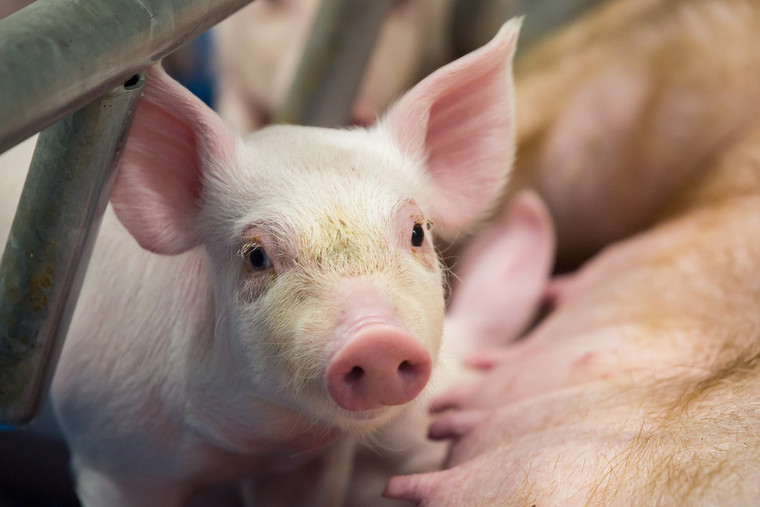Jack Bosworth, who runs an arable and pig operation with his father Stuart at Spains Hall, Willingale, was responding to a series of issues that has seen a backlog of more than 100,000 pigs stuck on farms across the country.
Spiraling costs, falling prices and the ongoing impact of Covid-19 have been worsened dramatically by export problems following Brexit, with the various factors combining to push many pig farmers to breaking point, said Jack, who is also vice-chairman of the National Pig Association’s (NPA) Young NPA group.
“The industry is stuck in a rut, and every week that passes it’s like the wheels turning in that rut and making it worse,” he said. “The industry is based on breeding, gestation, birth and finishing; it’s not something that can be switched off. The pigs keep coming, whether or not we sell them at the end of the process.
“That continuing process is like the wheel, spinning in the rut. We are hoping that someone will pull us out, but it increasingly looks like help will come too late for some producers.” Pigs that aren’t sold have to be kept on farm, adding significantly to the costs and potentially taking them over agreed parameters and reducing their value.
Covid-19 has affected the workforce in many abattoirs across the country, which has not only reduced the slaughterhouses’ capacity but has seen some of them awaiting re-certification by Chinese authorities.
Even more critically, new export regulations following the UK’s split from the EU are causing huge hold-ups at the border, with some fresh produce held back for so long that it is rejected by the buyer when it eventually reaches its destination.
“Pork is selling well in the UK and we want to build on that, but we need the export market for carcass balance – some parts of the animal just don’t sell in this country,” explained Jack. NPA chief executive Zoe Davies has said that in the first ten months of 2020 the UK exported more than 180,000 tonnes of pork to the EU.
Post-Brexit, though – and despite the fact that European imports are being let into this country without delays – UK pig farmers are having to complete lengthy and complex paperwork which often has to be checked as the UK now has ‘third country’ status. “I understand that 30% of our exports are checked, compared with 1% of shipments entering Europe from New Zealand,” Jack said. “It’s causing carnage.”
A round table meeting called to discuss the growing crisis was attended by DEFRA Farming Minister Victoria Prentis, Secretary of State George Eustice, senior DEFRA officials and representatives from the NPA, processors, retailers and the Agriculture and Horticulture Development Board (AHDB).
Zoe Davis said it had been “a very constructive meeting”, and that it was clear that both ministers and the department were taking the issue seriously, adding: “We now need to turn these positive discussions into action, but we were very encouraged by what both DEFRA and retailers had to offer.”
The round table was held at the request of NPA chairman Richard Lister, who outlined the “unique set of circumstances which have created the perfect storm we face” and went on: “The net effect of this has been that many more pigs need to be cared for and provided with increasingly expensive feed and straw, resulting in rapidly declining cashflows and mounting losses for producers. The backlog is growing, and pig farming is at its most critical state for 20 years.”
It is estimated that, on average, UK producers are losing around £20 on each pig they produce, a figure that could cost a producer of Jack Bosworth’s scale a total of £300,000 in a year.
A recent NPA members survey showed that 86% of producers said they had had pigs ‘rolled’, or held over to a later date, by processors, while 44% said it was a regular occurrence. A total of 88% of producers were in a loss-making situation or expected to be in one soon and 84% said the situation was having a negative impact on their mental health.
While the British Meat Processors’ Association (BMPA) told the round table that regaining access to China was the single most effective way to resolve the issues, the ministers encouraged processors to look for interim alternatives in order to stimulate demand.
For Jack Bosworth, though, the answer lies in the Government persuading the EU to streamline the export process and make it “fit for purpose”. He added: “The industry is facing the worst crisis it has seen in 20 years and pig famers stand to lose millions of pounds if they have to slaughter pigs for welfare reasons. The officials have made all the right noises – now they have to come up with some action.”
Photos: ©Martin Apps, Countrywide Photographic




